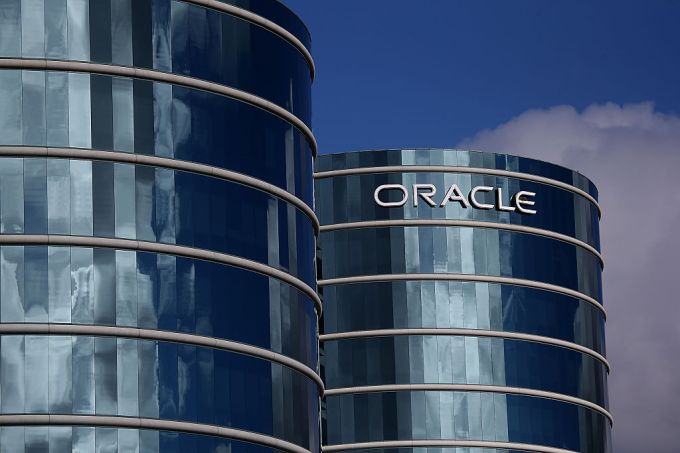As computing systems become increasingly bigger and more complex, forensics have become an increasingly important part of how organizations can better secure them. As the recent SolarWinds breach has shown, it’s not always just a matter of being able to identify data loss, or prevent hackers from coming in in the first place. In cases where a network has already been breached, running a thorough investigation is often the only way to identify what happened, if a breach is still active and whether a malicious hacker can strike again.
As a sign of this growing priority, a startup called Cado Security, which has built forensics technology native to the cloud to run those investigations, is announcing $10 million in funding to expand its business.
Cado’s tools today are used directly by organizations, but also security companies like Redacted — a somewhat under-the-radar security startup in San Francisco co-founded by Facebook’s former chief security officer Max Kelly and John Hering, the co-founder of Lookout. It uses Cado to carry out the forensics part of its work.
The funding for London-based Cado is being led by Blossom Capital, with existing investors Ten Eleven Ventures also participating, among others. As another signal of demand, this Series A is coming only six months after Cado raised its seed round.
The task of securing data on digital networks has grown increasingly complex over the years: Not only are there more devices, more data and a wider range of configurations and uses around it, but malicious hackers have become increasingly sophisticated in their approaches to needling inside networks and doing their dirty work.
The move to the cloud has also been a major factor. While it has helped a wave of organizations expand and run much bigger computing processes as part of their business operations, it has also increased the so-called attack surface and made investigations much more complicated, not least because a lot of organizations run elastic processes, scaling their capacity up and down: This means when something is scaled down, logs of previous activity essentially disappear.
Cado’s Response product — which works proactively on a network and all of its activity after it’s installed — is built to work across cloud, on-premise and hybrid environments. Currently it’s available for AWS EC2 deployments and Docker, Kubernetes, OpenShift and AWS Fargate container systems, and the plan is to expand to Azure very soon. (Google Cloud Platform is less of a priority at the moment, CEO James Campbell said, since it rarely comes up with current and potential customers.)
Campbell co-founded Cado with Christopher Doman (the CTO) last April, with the concept for the company coming out of their respective experiences working on security services together at PwC, and respectively for government organizations (Campbell in Australia) and AlienVault (the security firm acquired by AT&T). In all of those, one persistent issue the two continued to encounter was the issue with adequate forensics data, essential for tracking the most complex breaches.
A lot of legacy forensics tools, in particular those tackling the trove of data in the cloud, was based on “processing data with open source and pulling together analysis in spreadsheets,” Campbell said. “There is a need to modernize this space for the cloud era.”
In a typical breach, it can take up to a month to run a thorough investigation to figure out what is going on, since, as Doman describes it, forensics looks at “every part of the disk, the files in a binary system. You just can’t find what you need without going to that level, those logs. We would look at the whole thing.”
However, that posed a major problem. “Having a month with a hacker running around before you can do something about it is just not acceptable,” Campbell added. The result, typically, is that other forensics tools investigate only about 5% of an organization’s data.
The solution — for which Cado has filed patents, the pair said — has essentially involved building big data tools that can automate and speed up the very labor intensive process of looking through activity logs to figure out what looks unusual and to find patterns within all the ones and zeros.
“That gives security teams more room to focus on what the hacker is getting up to, the remediation aspect,” Campbell explained.
Arguably, if there were better, faster tracking and investigation technology in place, something like SolarWinds could have been better mitigated.
The plan for the company is to bring in more integrations to cover more kinds of systems, and go beyond deployments that you’d generally classify as “infrastructure as a service.”
“Over the past year, enterprises have compressed their cloud adoption timelines while protecting the applications that enable their remote workforces,” said Imran Ghory, partner at Blossom Capital, in a statement. “Yet as high-profile breaches like SolarWinds illustrate, the complexity of cloud environments makes rapid investigation and response extremely difficult since security analysts typically are not trained as cloud experts. Cado Security solves for this with an elegant solution that automates time-consuming tasks like capturing forensically sound cloud data so security teams can move faster and more efficiently. The opportunity to help Cado Security scale rapidly is a terrific one for Blossom Capital.”

 Oracle announced yesterday that it intends to acquire Zenedge, a 4-year old hybrid security startup. They didn’t reveal a purchase price. With Zenedge, Oracle gets a security service to add it to its growing cloud play. In this case, the company has products to protect customers whether in the cloud, on-prem or across hybrid environments. The company offers a range of services from…
Oracle announced yesterday that it intends to acquire Zenedge, a 4-year old hybrid security startup. They didn’t reveal a purchase price. With Zenedge, Oracle gets a security service to add it to its growing cloud play. In this case, the company has products to protect customers whether in the cloud, on-prem or across hybrid environments. The company offers a range of services from…  Last fall, Mr. Nadella came to Washington and in a comprehensive speech the Microsoft CEO laid out Microsoft’s broad vision for security in the enterprise. Today, the company made a series of announcements in a lengthy blog post from Microsoft Chief Information Security Officer Bret Arsenault that starts to bring that vision into clearer focus. It’s probably not a coincidence…
Last fall, Mr. Nadella came to Washington and in a comprehensive speech the Microsoft CEO laid out Microsoft’s broad vision for security in the enterprise. Today, the company made a series of announcements in a lengthy blog post from Microsoft Chief Information Security Officer Bret Arsenault that starts to bring that vision into clearer focus. It’s probably not a coincidence…